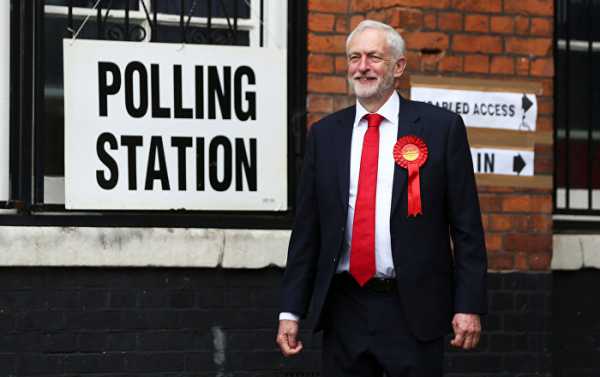
Concerns over Jeremy Corbyn one day ahead of the British cabinet meeting have reportedly prompted the EU to stick to a firm stance in Brexit negotiations.
Uncertainty over Labour’s economic policies are the main reason for the EU’s insistence on a tough so-called “level playing field mechanism” in a future deal after Britain leaves the bloc, The Times cited senior European officials as saying.
The stance was revealed right after the Tory ranks split over the would-be customs arrangement between Britain and the EU in the post-Brexit period. Meanwhile, European governments are voicing increased concerns over the prospect of state subsidies and possible nationalizations if Corbyn rises to power.
EU law notably prohibits state aid for industry, defining it as “an advantage in any form whatsoever conferred on a selective basis to undertakings by national public authorities.” Speaking about Labour’s future, the sources expressed certainty that the Conservatives are not expected to orchestrate the Brexit and post-Brexit deal till the end:
“The idea that Conservatives would legislate a race to the bottom is a myth and no one really believes it, even if some Tories have helped create it. The real fear is state subsidies under a Jeremy Corbyn government,” a senior Brussels source involved in Brexit negotiations said. “British policy has remained unchanged for generations but now there is a real chance of a left-wing government reversing it. We have to protect ourselves and the single market.”
Although Corbyn has changed his position to back Britain being part of a customs union, which will allow it to avoid customs checks and multiple lines at the border, he remains strictly opposed to the single market or EEA membership, which is obviously worrisome for EU member states.
For the time being, Prime Minister Theresa May’s focus has been on trying to establish a close customs relationship with the EU. However, the strongly pro-European upper house of Parliament is expected on Tuesday to look into changes to the EU. A withdrawal bill would establish even closer economic ties between the post-Brexit UK and the remaining bloc members.
Amid the afore-mentioned fears, the EU is adopting a damage-control strategy, which includes a “non-regression clause,” which essentially incorporates Margaret Thatcher’s privatization and free market policies into the Brexit deal. Separately, the bloc demands a mechanism that would hit Britain with hard trade tariffs, compensation fees and introduce measures to restrict Britain’s air traffic should the UK pursue a policy that subsidizes industries.
The UK is in ongoing talks over the Brexit deal with the EU and has reached a deadlock over the Irish border issue. Their previous proposals were flatly refuted by the EU and their next one is due to be debated in June 2018. If this isn’t resolved by the Brexit talks deadline in March 2019, then chances are that the UK will split with the EU through the no-deal scenario, which may make reaching trade agreements between the two far more difficult.
Sourse: sputniknews.com






